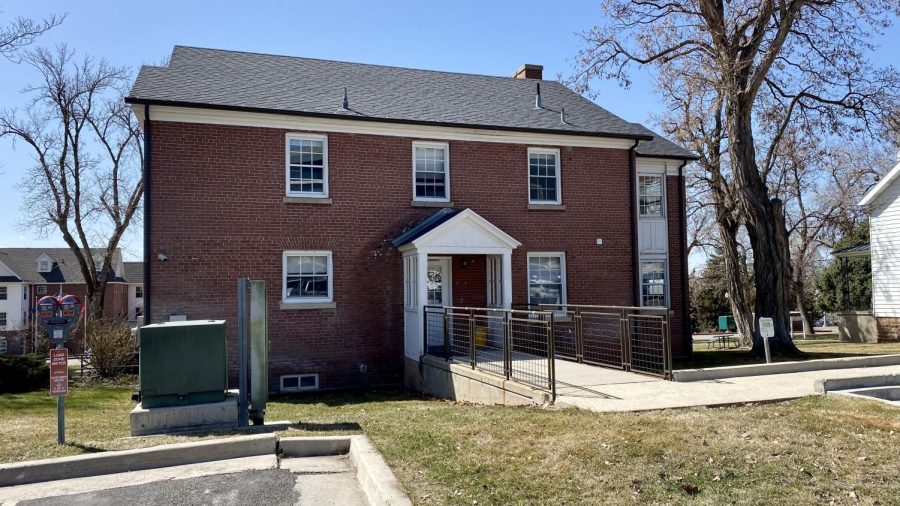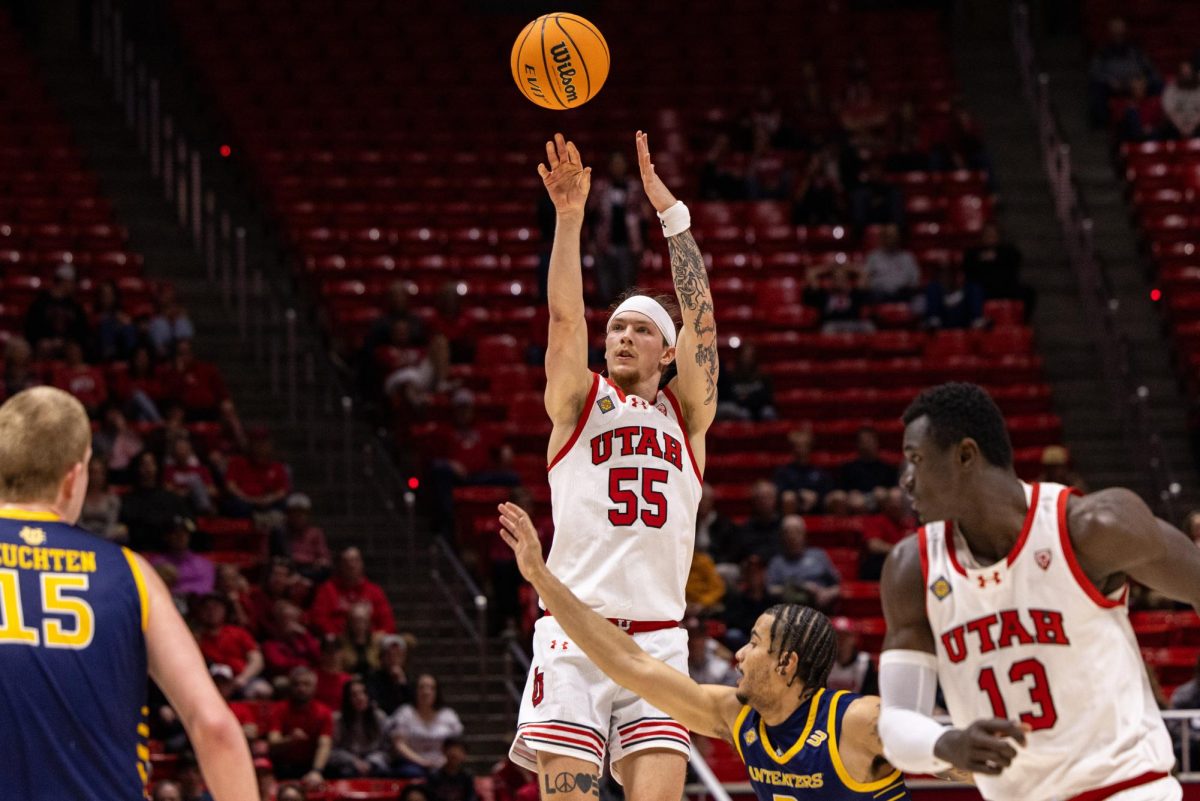Alexander: The U Does Not Care About Black Students, Staff and Policy
The Black Cultural Center at the University of Utah in Salt Lake City on Saturday, March 24, 2022. (Photo by Jonathan Wang | The Daily Utah Chronicle)
May 4, 2022
In January 2022, the University of Utah’s Black Cultural Center received a bomb threat that left many members of our campus’s Black community feeling unsafe. Instead of notifying students immediately, the U Police Department released a statement hours after the incident, claiming a timely warning was “unnecessary.”
After students called out the delayed response as reactionary and non-committal, the U’s Office of Equity, Diversity and Inclusion released a formal acknowledgment condemning the hateful act. Additional action came in the form of the Day of Collective Action, which was held on March 22.
The U’s Day of Collective Action was, to say the least, very underwhelming. There was a severe lack of engagement and negligible participation, the result of limited and almost non-existent advertising. Despite the mix of both virtual and in-person sessions, the event failed to bring about the effective change that President Taylor Randall and his administration are committed to.
For one, the sessions and workshops were voluntary; therefore the people that need EDI education the most were not required to participate, and those who did are the people already putting in work towards EDI efforts.
If the U was serious about supporting their Black and minority communities, they would invest more time, effort, money and resources to create and foster a supportive community. But instead, they respond and act only after students raise concerns about the lack of initiative.
This is not the first time the U has failed the Black community. It’s not even the first time this school year. Black students have experienced other forms of hateful incidents. One student reported having feces smeared on their dorm room door, while another witnessed men dressed as KKK members parading in the dorms. And just like the BCC bomb threat, these incidents were not addressed in a timely fashion but instead after students called out the administration’s lack of support.
These delayed responses display the U’s indifference to Black issues, ultimately highlighting the U’s failure to handle racial incidents effectively and supportively.
The administration’s responses and actions for the Black campus community require timeliness, support and strong condemnations against hate. If our administration only addresses racial incidents after backlash based on inadequacies or timeliness, then their responses are reactionary and performative. We refuse to accept the U’s worthless commitment to Black people and causes if its purpose is to uphold the administration’s reputation.
And unfortunately, the U’s current EDI efforts and initiatives rest solely on minority individuals and aren’t properly supported by the white administration. Nahum Tadesse, an intern at the U’s EDI Office and U student, explained, “That’s one of the hardest things, understanding how to make a group that is not re-traumatizing Black people, without putting all of the burdens of the work on Black people, but that is also centering Black people.”
The U’s Black community is already underserved, and forcing Black educators, staff and administration on this campus to spearhead EDI change puts unnecessary and unwelcome emotional labor on them. Support for Black students on this campus relies on the efforts of overextended Black faculty and staff. We need more from our white counterparts. We can be at the center of change, but longevity requires the collective effort of non-Black people on campus.
Fostering a welcoming community on campus, not only for Black people but for every marginalized community, also requires much more effort from our donors and executive and administrative boards. These so-called allies need to put in the work towards EDI initiatives and put their money where their mouth is.
A lot of EDI efforts and progress are bottlenecked at the institutional level either because of lack of funding or lack of interest. An example of this is the Black Advisory Council, which was suggested to the administration by ASUU and the Black Student Union as a way to help combat and educate EDI efforts institutionally. However, despite the suggestion being almost two years old, the BAC has not been formed yet.
The U only implements EDI initiatives and efforts for brownie points. If they cared about these issues, they would create more resources for Black students specifically, including mental health resources, outreach programs and initiatives to increase the number of Black people on campus.
We can’t be committed to efforts against anti-Blackness if we’re only pushing EDI for face value and because diversity is “trendy.” If the U wants to do something for their Black community on campus, they need to follow through with intentional action. Impactful EDI work should not be reactionary, but rather a continued and sustained effort.










Christopher Joel Alexander • Aug 4, 2022 at 6:57 am
Really sad that this can happen in this day and age. Thank you for keeping us informed. Shine your light.